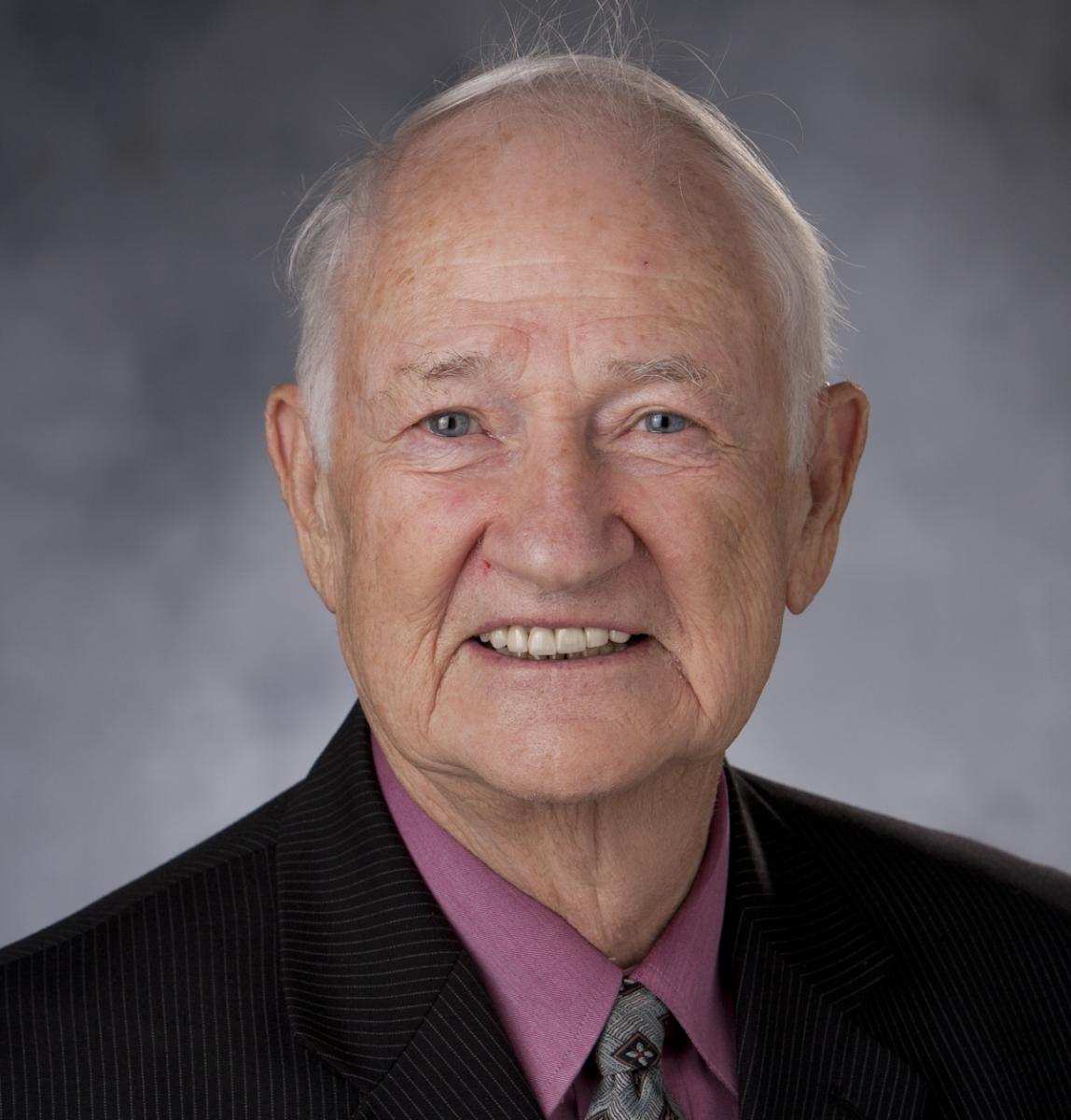Webinar: Patient Identity and Data Matching
The COVID-19 pandemic highlighted underlying challenges in data matching and patient identity and, in many cases, slowed public health efforts to respond to and contain the spread of the virus.
eHI invited participation in a survey to assess industry views and opinions on the importance of data matching and patient identity in the response to COVID-19. This webinar analyzes our findings.
Speakers:
Jennifer Covich Bordenick
CEO, eHealth Initiative and Foundation
 For over 20 years, Jennifer has focused on quality and innovative technology solutions to transform healthcare. As CEO, she provides leadership for research, education, and advocacy components of eHealth Initiative and Foundation (eHI). Convening senior executives from every group in healthcare to discuss, identify, and share best practices that transform the delivery of healthcare. Focus areas: improving health and wellness through innovative solutions; interoperability; privacy concerns; artificial intelligence; payment models to support innovative care; and tech tools for chronic care. She led development of dozens of national surveys and published groundbreaking reports. As part of her work with the Foundation, she led grants with California Health Care Foundation, Commonwealth Fund, Aetna Foundation and Bristol Meyers Squibb Foundation. Jennifer is co-chair of the Federal HIT Policy Committee’s Strategy and Innovation Workgroup; member of the HL7 Board of Directors; and a member of the Diabetes Collaborative Stakeholder Panel. Jennifer is a faculty member for the MHA and MHIA graduate programs at George Washington University. Prior to joining eHI, Jennifer headed up the strategic marketing at OpenNetworks, Inc., focusing on security solutions for the healthcare industry. She led healthcare industry relations at MicroStrategy, Inc., focusing on data-mining solutions for the pharmaceutical and healthcare industry. She spent four years at the National Committee for Quality Assurance as Director of Policy and Product Development, helping develop national quality standards for healthcare organizations. Jennifer began her career at the George Washington University Hospital, Medical Center and Health Plan working on quality management initiatives, clinical pathways and healthcare administration. Jennifer earned a master's in Human Resource Development, completed coursework in health administration doctoral program at GWU, and resides in Maryland with her husband and two children.
For over 20 years, Jennifer has focused on quality and innovative technology solutions to transform healthcare. As CEO, she provides leadership for research, education, and advocacy components of eHealth Initiative and Foundation (eHI). Convening senior executives from every group in healthcare to discuss, identify, and share best practices that transform the delivery of healthcare. Focus areas: improving health and wellness through innovative solutions; interoperability; privacy concerns; artificial intelligence; payment models to support innovative care; and tech tools for chronic care. She led development of dozens of national surveys and published groundbreaking reports. As part of her work with the Foundation, she led grants with California Health Care Foundation, Commonwealth Fund, Aetna Foundation and Bristol Meyers Squibb Foundation. Jennifer is co-chair of the Federal HIT Policy Committee’s Strategy and Innovation Workgroup; member of the HL7 Board of Directors; and a member of the Diabetes Collaborative Stakeholder Panel. Jennifer is a faculty member for the MHA and MHIA graduate programs at George Washington University. Prior to joining eHI, Jennifer headed up the strategic marketing at OpenNetworks, Inc., focusing on security solutions for the healthcare industry. She led healthcare industry relations at MicroStrategy, Inc., focusing on data-mining solutions for the pharmaceutical and healthcare industry. She spent four years at the National Committee for Quality Assurance as Director of Policy and Product Development, helping develop national quality standards for healthcare organizations. Jennifer began her career at the George Washington University Hospital, Medical Center and Health Plan working on quality management initiatives, clinical pathways and healthcare administration. Jennifer earned a master's in Human Resource Development, completed coursework in health administration doctoral program at GWU, and resides in Maryland with her husband and two children.

Wanneh Dixon
Director, Strategy and Programs, eHealth Initiative and Foundation
Wanneh directs the social determinants of health (SDOH) and data analytics programs for eHealth Initiative and Foundation (eHI). Wanneh previously worked as the Corporate Engagement Manager for FHI 360, an international development firm focused on global health, education and economic empowerment. At FHI 360 she managed the private sector engagement strategy to cultivate relationships with corporations, foundations, donors and membership organizations. Her global health portfolio focused on maternal mortality, non-communicable diseases, and health systems strengthening. Wanneh holds a BSc in Information Technology from Herzing College and a M.A. in Global Development and Social Justice from St. John’s University. She lives in Maryland and serves on the Human Services Advisory Commission for the City of Rockville.

Mark LaRow
CEO, Verato
Mark is the Verato Chief Executive Officer. He was formerly at MicroStrategy, a BI software provider, for 14 years where he was the Executive Vice President of Products, responsible for product strategy, product marketing, and competitive intelligence. Prior to MicroStrategy, Mark was with Ernst & Young for 17 years and left as Partner responsible for all technical consulting in the east region of the US. Mark holds MS and BS degrees from MIT in electrical engineering and computer science. Outside the office, Mark enjoys woodworking and is an avid soccer fan, supporting FC Barcelona.

David Kates
Chief Technology Officer, Manifest MedEx
David leads the technology, security, and scalability programs for the Manifest MedEx network. Before MX, David has served in senior leadership roles at Wellpass, Inc (CTO), The Advisory Board Company, NaviNet, WebMD, Hx Technologies, and Cerner Corporation where he has led health information technology strategy, development, product management, and implementation activities.
David is an active contributor to government and industry HIT activities. He serves on the ONC Standards FACA Implementation Workgroup and previously served as co-chair for CCHIT and past board member of HL7 and represented The Advisory Board Company on the FHIR/Argonaut project. David received his bachelor’s and master’s degrees in electrical engineering and computer science from the Massachusetts Institute of Technology and his MBA from Duke University Fuqua School of Business.

William Hammond
Director, Duke Center for Health Informatics, Duke Translational Medicine Institute at Duke University
W. Ed Hammond, PhD, FACMI, FAIMBE, FIMIA, FHL7 has extensive experience in the design and implementation of electronic health records, starting in 1970. Dr. Hammond's academic and industry leadership include, past president of the American Medical Informatics Association (AMIA) and AMIA Board member, President and Fellow of the American College of Medical Informatics, three terms as Chair of Health Level Seven and HL7 committees, two terms as the Convenor of ISO Technical Committee 215, Working Group 2 and the current Ambassador to Developing Countries and the chair of the Joint Initiative Council of ISO/CEN/HL7. He was Chair of the Data Standards Working Group of the Connecting for Health Public-Private Consortium and serves on the Board of the eHealth Initiative. He also served as Chair of the Computer-based Patient Record Institute and on the CPRI Board. He was a Chair of ACM SIGBIO, is an advisor to the American Hospital Association on health data standards and related matters, and chair of the Steering Committee for the Rockefeller-sponsored Open Enterprise eHealth Architecture Framework Project.
Dr. Hammond served as a member of the Institute of Medicine Committee on Patient Safety Data Standards. He was a member of the National Library of Medicine Long Range Planning Committee and a member of the Healthcare Information Technology Advisory Panel of the Joint Commission on Accreditation of Healthcare Organizations. He has served on a number of NIH review committees, testified on a number of occasions for NCVHS, and has presented to several IOM committees. Dr. Hammond has served and is serving on a number of editorial boards and has published over 300 technical articles.
WEBINAR: Improving Access to Healthcare Data via the FHIR Payer Endpoints Directory
eHI and CAQH webinar - November 10th, 2020 - on CAQH’s FHIR Payer Endpoints Directory, a centralized directory that securely publishes validated FHIR endpoints, simplifying how healthcare organizations and third-party apps find and share endpoint information. The informative presentation will dive into how the FHIR Payer Endpoints Directory intersects with new regulatory requirements in the CMS Interoperability and Patient Access Final Rule.
Speakers:

Jennifer Covich Bordenick
CEO, eHealth Initiative and Foundation
For over 20 years, Jennifer has focused on quality and innovative technology solutions to transform healthcare. As CEO, she provides leadership for research, education and advocacy components of eHealth Initiative and Foundation (eHI). Convening senior executives from every group in healthcare to discuss, identify, and share best practices that transform the delivery of healthcare. Focus areas: improving health and wellness through innovative solutions; interoperability; privacy concerns; artificial intelligence; payment models to support innovative care; and tech tools for chronic care. She led development of dozens of national surveys and published groundbreaking reports. As part of her work with the Foundation, she led grants with California Health Care Foundation, Commonwealth Fund, Aetna Foundation and Bristol Meyers Squibb Foundation. Jennifer is co-chair of the Federal HIT Policy Committee’s Strategy and Innovation Workgroup; member of the HL7 Board of Directors; and a member of the Diabetes Collaborative Stakeholder Panel. Jennifer is a faculty member for the MHA and MHIA graduate programs at George Washington University. Prior to joining eHI, Jennifer headed up the strategic marketing at OpenNetworks, Inc., focusing on security solutions for the healthcare industry. She led healthcare industry relations at MicroStrategy, Inc., focusing on data-mining solutions for the pharmaceutical and healthcare industry. She spent four years at the National Committee for Quality Assurance as Director of Policy and Product Development, helping develop national quality standards for healthcare organizations. Jennifer began her career at the George Washington University Hospital, Medical Center and Health Plan working on quality management initiatives, clinical pathways and healthcare administration. Jennifer earned a master's in Human Resource Development, completed coursework in health administration doctoral program at GWU, and resides in Maryland with her husband and two children.

Robin Thomashauer
President, CAQH
Robin Thomashauer is the president of CAQH, a non-profit alliance that is the leader in creating shared initiatives to streamline the business of healthcare. She has overseen the strategy and operations of the organization since its inception, over 20 years ago.
Under her direction, CAQH has collaborated with health plans, hospitals and healthcare providers to develop, implement, and manage initiatives that reduce costs and eliminate unnecessary administrative burden. These efforts include the Committee on Operating Rules for Information Exchange (CAQH CORE®), CAQH ProView®, SanctionsTrack®, COB Smart®, EnrollHub®, DirectAssure®, VeriFide™ and the CAQH Index®.
Robin has more than 30 years of broad experience in strategy, managed care operations and hospital administration. Before joining CAQH she was a director in the health care practice at PricewaterhouseCoopers (PwC), with a primary focus on payer organizations. Prior to her position with PwC, Robin held senior management positions with Kaiser Permanente, as well as in several teaching hospitals.
Robin holds an M.H.S.A. in Health Care Administration from The George Washington University, and a B.A. in Social Sciences from Colgate University. She is a Diplomate in The American College of Healthcare Executives.

April Todd
Senior Vice President, CORE and Explorations
CAQH
April Todd is the Senior Vice President, CORE and Explorations for CAQH. She is responsible for leading the CAQH CORE multi-stakeholder collaboration that is driving the creation and adoption of healthcare operating rules for electronic administrative transactions and establishing a common foundation for the operational components of value-based payment. She also directs the research functions for the organization including the CAQH Index.
Prior to joining CAQH, April led data, analytic, strategic, and product development functions focused on value-based care for Avalere, an Inovalon Company. Before her role at Avalere, April established the MNsure state health insurance exchange and served as Minnesota’s State Health Economist. April also previously held roles as the Vice President of Strategic Analysis and Communications for Government Affairs at UnitedHealth Group and as the Director of Competitive Intelligence for United Healthcare.
April holds an MPH from the University of Minnesota and a BA from Beloit College.

Ron Urwongse
Director, Strategy and Innovation
CAQH
Ron Urwongse is the Director of Strategy and Innovation at CAQH. His role entails launching new products and managing strategic partnerships. Previously, he led product development at Tyrula LLC, focusing on risk adjustment and quality improvement solutions in managed care. At Vecna Technologies, Ron led the development of Massachusetts Commonwealth Connector the first state health insurance exchange, QC PathFinder infection surveillance, and a patient kiosk solution deployed in over 170 VA Medical Centers. Ron writes country western songs and auditioned once for the televised singing show Nashville Star. Ron received his MBA from the MIT Sloan School of Management, Master’s Degree in Information Systems Management from Carnegie Mellon University, and B.S. degree in Information Systems from Carnegie Mellon University.
The Rise of Telehealth (Dissent Magazine)
The Rise of Telehealth
Telehealth has become a necessity during the pandemic. But its promises to increase access will fall apart if becomes yet another profit center in a consolidated healthcare system.
Letter to Congress: eHI Supports Protecting Access to Post-COVID-19 Telehealth Act of 2020 (HR 7663)
On Monday, August 3rd, eHI, along with more than 200 stakeholder organizations, sent a letter of endorsement for the Protecting Access to Post-COVID-19 Telehealth Act of 2020 (HR 7663).
The legislation, sponsored by Representative Mike Thompson (D-CA) and co-sponsored by David Schweikert (R-AZ), Peter Welch (D-VT), Bill Johnson (R-OH), and Doris Matsui (D-CA) takes critical steps toward ensuring all Medicare beneficiaries have continued access to telehealth services after the COVID-19 public health emergency (PHE) period.
You can read the letter supporting HR 7663 below.
Executive Insights: Healthcare Executives Discuss Fighting COVID-19 with Innovative Strategies & Technology
Smartphone apps, contact tracing, data analytics and artificial intelligence make finding and treating people with an infectious disease, like COVID-19, far more efficient than ever before. The connectivity we have today gives us ammunition to fight this pandemic in ways we never previously thought possible.
WEBINAR: Five Members of Congress Join Leading Health Associations to Discuss Telehealth Legislation
On Thursday, July 23rd, eHI and several leading health care organizations held a virtual rally on the Protecting Access to Post-COVID-19 Telehealth Act of 2020 (HR 7663). While Congress and the Centers for Medicare & Medicaid Services acted quickly to implement waivers to allow for the reimbursement of telehealth services during the COVID-19 public health emergency, seniors will lose access to this important care unless Congress again takes decisive action.
The House Telehealth Caucus leaders - Representative Mike Thompson (D-CA), David Schweikert (R-AZ), Peter Welch (D-VT), Bill Johnson (R-OH), and Doris Matsui (D-CA) joined eHI CEO Jennifer Covich Bordenick and CEOs from four leading digital health associations to discuss the legislation. eHI, along with more than 300 other organizations, signed a stakeholder letter to Congress supporting continued access to telehealth.
The legislation addresses most of the priorities included in the letter and would ensure all Medicare beneficiaries have continued access to telehealth services. Organizations can sign a letter of endorsement for HR 7663 by clicking here.
"Telehealth has proven vital to supporting the continuity of care."
- Rep. Doris Matsui, D-Calif.
Early Impact Of CMS Expansion Of Medicare Telehealth During COVID-19
By Seema Verma, Administrator of the Centers for Medicare & Medicaid Services (CMS)
During the Coronavirus pandemic, the Centers for Medicare and Medicaid Services (CMS) has taken unprecedented action to expand telehealth for Medicare beneficiaries. Since people were advised to stay at home to reduce risk of exposure of COVID-19, there was an urgency to increase access to telehealth services to help people who need routine care and allow beneficiaries to remain in their homes. Early CMS data have shown telehealth to be an effective way for people to access health care safely during the COVID-19 pandemic, whether it’s getting a prescription refilled, managing chronic conditions, or obtaining mental health counseling.
With these transformative changes unleashed over the last several months, it’s hard to imagine merely reverting to the way things were before. As the country re-opens, CMS is reviewing the flexibilities the administration has introduced and their early impact on Medicare beneficiaries to inform whether these changes should be made a permanent part of the Medicare program.
Telehealth in Times of Crisis & Calm
Healthcare practices face significant challenges when it comes to keeping their brick and mortar businesses alive in the face of evolving safety requirements and consumer expectations. NextGen Healthcare examines why telehealth is so vital to a practice's survival and future growth, how providers & patients can embrace virtual visits and why a virtual visit solution that's integrated with your EHR and PM is critical to maintain workflow continuity.
WEBINAR: Advancing an Effective National Privacy Framework for Health Data
Americans are increasingly apprehensive about the privacy of their personal information. A recent Pew Research Center survey found that approximately four out of five Americans are concerned about how their data is used, think the risks of companies collecting their data outweigh the benefits and believe they have little control of their data. The concerns are particularly heightened when it comes to health data.
340 Organizations Send Letter to Congress Urging Action on Telehealth
WASHINGTON, DC, JUNE 29, 2020 - Today, 340 organizations signed a letter urging Congressional leaders to make telehealth flexibilities created during the COVID-19 pandemic permanent. Those signing this multi-stakeholder letter include national and regional organizations representing a full range of health care stakeholders and all 50 states, the District of Columbia, and Puerto Rico.
